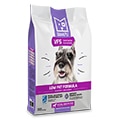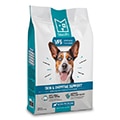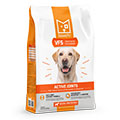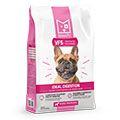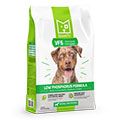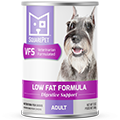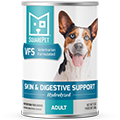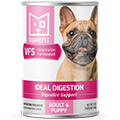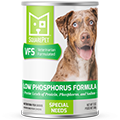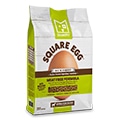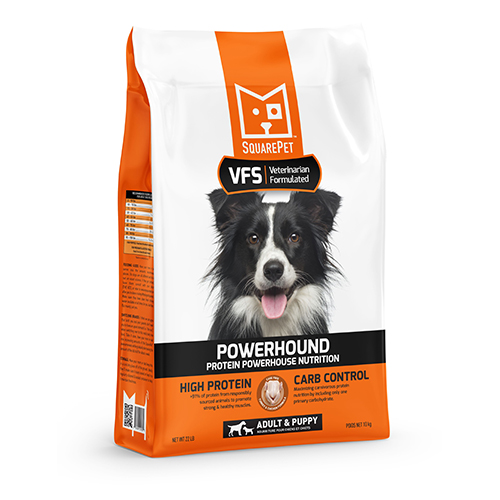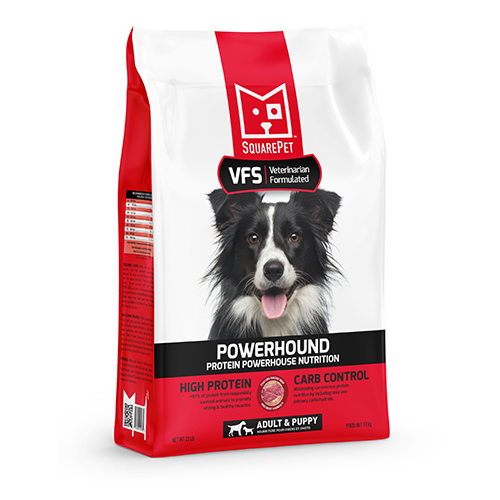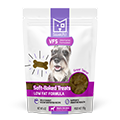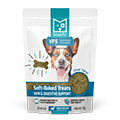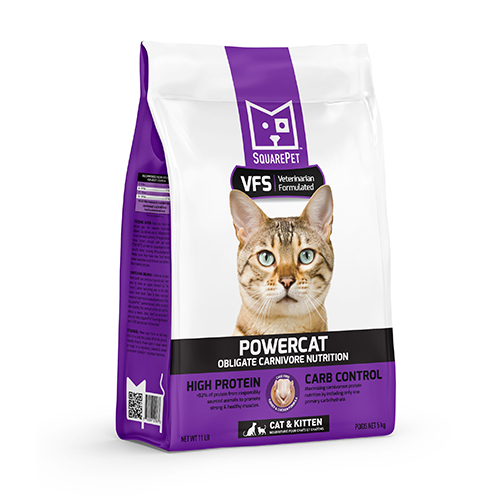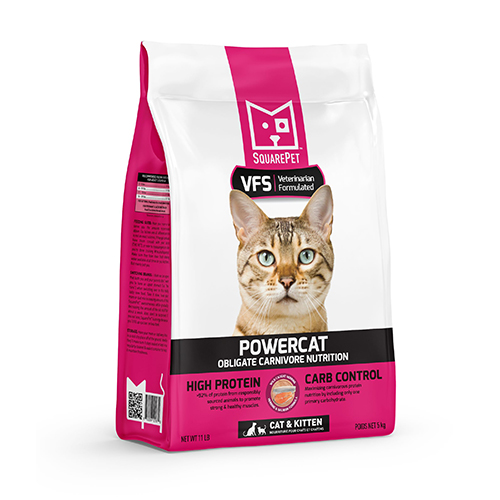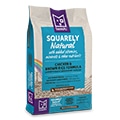A special type of protein may be the secret.
What are Food Allergies?
Food allergies can be divided into two categories:
- Food intolerances
- Hypersensitivity reactions (true allergic reactions)
Food intolerances are likely more common than true food allergies. Food intolerances are when a dog has an adverse reaction to a certain ingredient or to a certain formulation of food. For
example, a dog may be able to digest chicken but when fed lamb they have loose stools. Or they may tolerate a low fat diet formulation but can’t tolerate a higher fat diet. These are not signs of a food allergy but simply food intolerances. This is not isolated to our pets, some humans find that certain things they eat disagree with them, the same is true with our pets
Food allergies are a true hypersensitivity reaction that involve the immune system. During digestion a dog with a true food allergy will have a reaction to the specific protein they are
allergic to. This causes a cascade of separate ‘reactions’ within the body that can result in a myriad of different clinical signs such as dry flaky skin, hot spots, ear infections, intense itching or sometimes vomiting and diarrhea. It’s not until this protein is taken away that the dog will return to normal. It is not uncommon for a dog to be allergic to more than one protein source.
Food Allergy Symptoms in Dogs
Most commonly, but not always, dogs will begin to show signs of a food allergy when they are younger (cats don’t tend to have an age predilection). The itching and scratching can be localized to a specific area, face, ears, paws, stomach or be generalized over the entire body. The clinical signs tend to persist all throughout the year and won’t stop during a specific season. Not all dogs will have gastrointestinal signs (vomiting and diarrhea) – it is estimated that only about 20% with have both GI and skin clinical signs.
Food Allergy Diagnosis
There are a lot of steps that go into making the diagnosis of a food allergy. Other causes like flea allergy dermatitis, environmental allergies, and a number of other causes need to be ruled out by a veterinarian before a food allergy can be confirmed. A typical course of action to help diagnosis food allergies is to perform a strict elimination diet trial. This consists of feeding the dog a new diet that it has not been previously exposed to and keeping them on it for a number of weeks while not allowing them to eat anything else. If the clinical signs of itching and scratching go away while on this new diet, the original diet is reintroduced. If the dog’s clinical signs return or worsen while on this original diet, the diagnosis of food allergy may be confirmed. Modifications of this trial can be experimented with by further adjusting the diet in hopes of identifying the specific offending ingredient or protein.
Hypoallergenic Dog Food
While there is truly no 100% hypoallergenic dog food there are hydrolyzed protein dog foods that may help to reduce the chances of a food allergy from occurring. Hydrolyzed proteins are proteins that have been broken down into very small components – namely small protein fragments (peptides) and amino acids. These exceptionally small pieces of the protein don’t readily alert the immune system within the GI system during digestion like intact proteins. Therefore the hope with a hydrolyzed protein dog food is to evade the immune system in a way to not cause an allergic reaction.
Prescription or Non Prescription Hydrolyzed Protein Dog Food
There are choices to choose from when selecting a hydrolyzed protein diet for dogs with food allergies. There are prescription hydrolyzed protein diets and other non – prescription hydrolyzed protein dog food options becoming available. A key feature to look for with any hydrolyzed protein diet is that it is also a limited ingredient dog food. A veterinarian can help make the best choice based on the specific needs of an individual dog.
Once a dog has been diagnosed with a true food allergy they are then managed for life by avoiding ingredients they are known to be allergic to. The best dog food for allergies is one that eliminates these offending ingredients and therefore helps to remove or decrease food allergy symptoms
